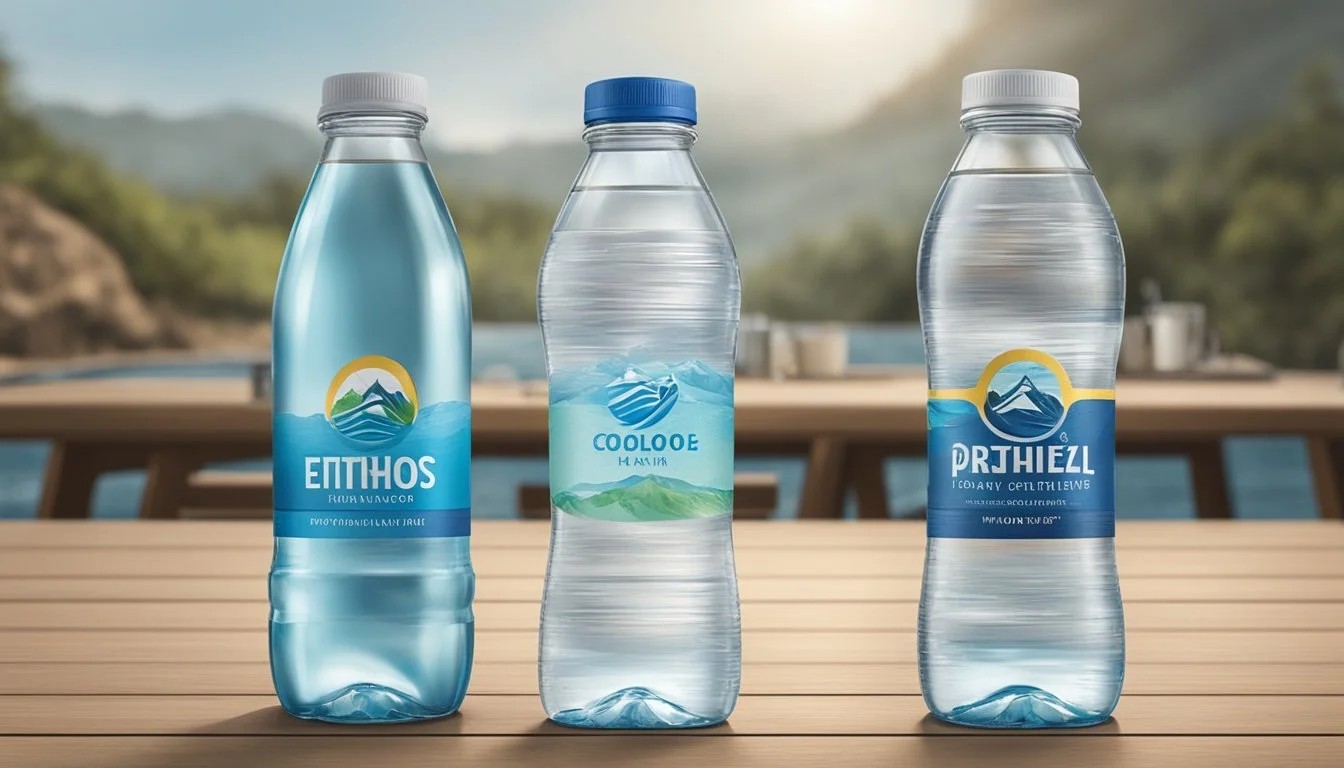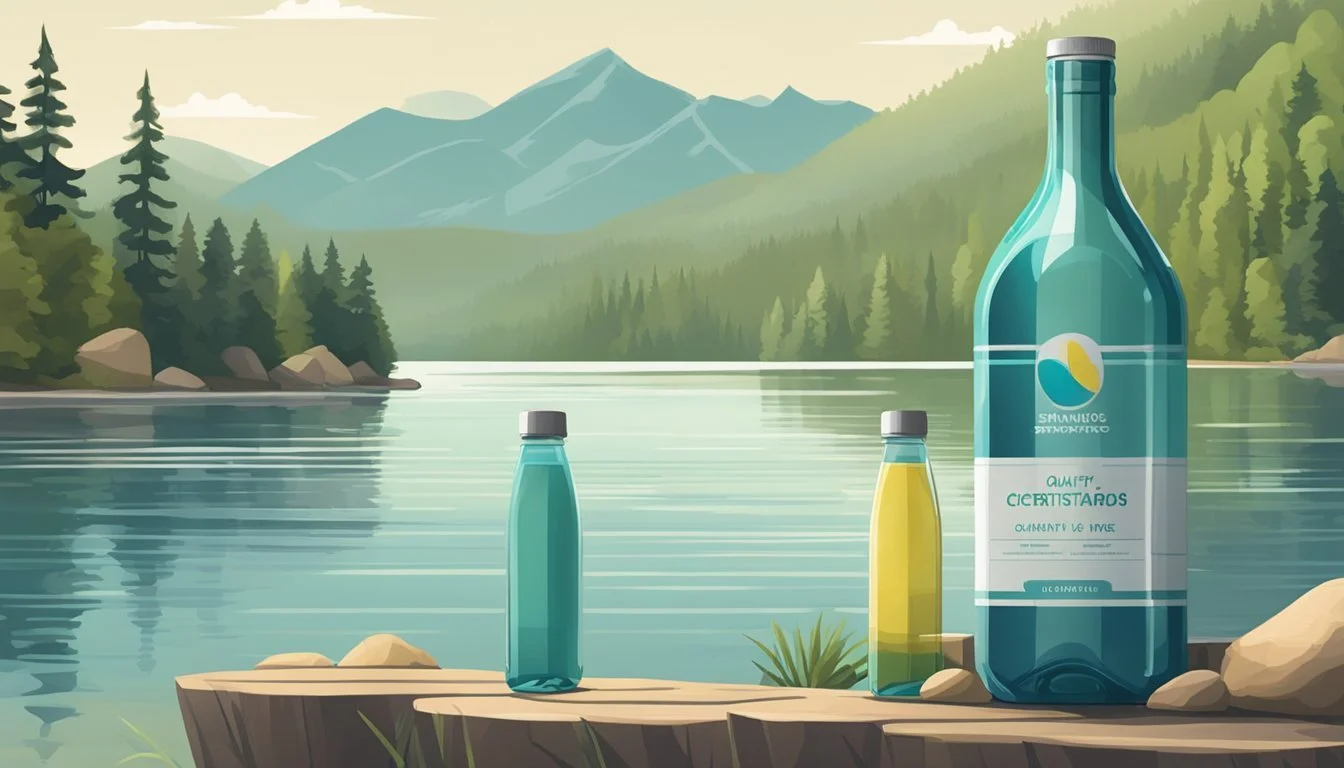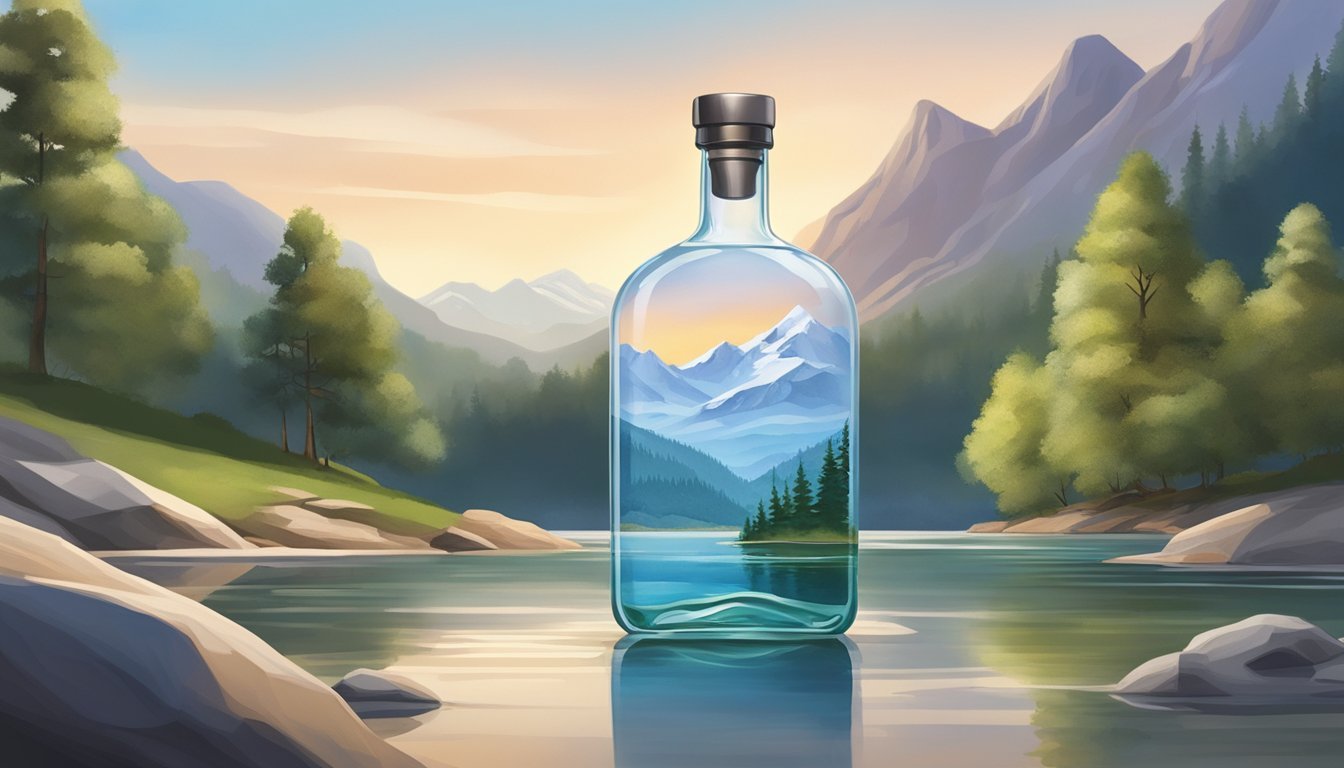Ethos vs. Open Water
Assessing the Superior Bottled Water
When it comes to choosing between Ethos and Open Water, there are several factors to consider, including taste, health benefits, and environmental impact. Ethos, a brand by Starbucks, is well-known for its philanthropic efforts, investing in water accessibility projects. This noble cause often adds emotional value for consumers.
Open Water, on the other hand, markets itself heavily on sustainability. The brand uses aluminum cans which are more readily recyclable compared to the plastic bottles used by Ethos. If environmental impact is your primary concern, Open Water has a clear advantage.
From a health perspective, both brands offer purified water, free from contaminants and additives. The choice then boils down to what matters more to you: supporting charitable initiatives or reducing plastic waste. This article explores these aspects in detail to help you make an informed decision.
Understanding Bottled Water
Bottled water comes in many forms, each with distinct characteristics influenced by its source and the processes it undergoes. Knowing the differences can help consumers make an informed choice about what they're drinking.
Water Sources and Their Significance
The source of bottled water significantly impacts its taste and mineral content. Spring water and natural spring water are typically sourced from underground formations and flow naturally to the surface. These sources are often distinguished by their natural purity and taste.
Mineral water is rich in dissolved minerals like calcium, magnesium, and potassium. It comes from mineral springs and boasts health benefits due to its mineral content. Alkaline water has a higher pH level and is often marketed as aiding in balancing body acidity.
Types of Bottled Water
Bottled water can be classified into several types based on its source and treatment processes. Purified water typically undergoes rigorous methods to remove impurities. Reverse osmosis and distillation are common purification techniques used to ensure high purity levels.
Sparkling water is carbonated, adding a fizzy texture that distinguishes it from still water. Some bottled waters combine characteristics, such as being both sparkling and derived from mineral springs.
Filtration and Purification Processes
Filtration and purification processes determine the final quality and taste of bottled water. Reverse osmosis involves forcing water through a semi-permeable membrane, removing contaminants and dissolved salts. This process is prevalent in purified water.
In comparison, some mineral waters retain their natural minerals and require minimal filtration. Spring water may undergo basic filtration to remove particulate matter while preserving its natural state. Each filtration and purification method aims to ensure the safety and palatability of the water while maintaining beneficial characteristics.
The Environmental and Convenience Factors
Comparing Ethos and Open Water involves understanding their impact on the environment and how they fit into people's daily lives. Packaging materials and the ease of integrating these brands into one's lifestyle are key points of contention.
Packaging and Plastic Waste
Ethos and Open Water adopt different packaging strategies. Ethos utilizes plastic bottles that are fully recyclable. These bottles also contribute to various clean water initiatives, reinforcing their commitment to social responsibility.
Open Water, on the other hand, opts for aluminum cans and bottles. Aluminum is highly recyclable and often reused, significantly reducing the environmental footprint. Unlike plastic, it doesn’t degrade as much over time, and recycling it saves around 95% of the energy needed to produce new aluminum.
Both brands aim to minimize plastic waste, with Open Water leaning towards long-term sustainability due to its focus on aluminum packaging. This makes Open Water potentially more eco-friendly. However, the overall effectiveness depends on the users' recycling habits and local recycling facilities.
Bottled Water and Lifestyle
When it comes to lifestyle integration, Ethos and Open Water offer different conveniences. Ethos’s plastic bottles are lightweight and easy to transport, appealing to those who need a robust, on-the-go hydration solution. Their support for global clean water projects also adds a layer of social responsibility, attracting conscientious consumers.
Open Water’s aluminum packaging is also lightweight but has the added benefit of being resealable for bottles. This suits people who prefer alternatives to plastic but still need convenience. Aluminum's durability allows it to withstand various conditions without compromising the product quality, making it ideal for outdoor enthusiasts and eco-conscious individuals.
Both options offer a blend of practicality and environmental considerations. Choosing between them often depends on individual lifestyle choices and priorities regarding environmental impact and convenience.
Health and Nutritional Perspectives
When comparing Ethos and Open Water from a health and nutritional standpoint, it is essential to consider factors like hydration benefits and mineral content. These elements directly impact body function and overall well-being.
Hydration and Body Function
Hydration plays a crucial role in maintaining various bodily functions. Both Ethos and Open Water offer effective hydration. Ethos Water, a subsidiary of Starbucks, is known for its philanthropic efforts and accessibility. Although both brands use plastic bottles, they ensure that the water provided meets safety standards.
Proper hydration supports body temperature regulation, nutrient transport, and energy levels. Ethos and Open Water contribute to these functions similarly, offering pure and clean water. Both brands meet the criteria for providing necessary hydration without introducing harmful substances.
Minerals and Electrolytes
Water isn't just about quenching thirst; it also provides essential minerals and electrolytes. Ethos Water is typically known for its balanced mineral content, including calcium and magnesium. These minerals are vital for bone health and muscle function.
Open Water, on the other hand, focuses on sustainability by offering aluminum bottled water but also ensures it provides necessary electrolytes. Potassium found in the water supports nerve function and cardiovascular health.
The mineral composition in both Ethos and Open Water helps maintain electrolyte balance, preventing dehydration and supporting cellular functions. Their mineral profiles offer added value beyond hydration, contributing positively to overall health.
Comparing Major Water Brands
In this section, we will analyze Ethos Water and Open Water, focusing on their unique characteristics, market positions, and social commitments, as well as taking a brief look at other major competitors in the bottled water market.
Ethos Water: Brand Analysis
Ethos Water is a subsidiary of Starbucks and is well-known for its social responsibility initiatives. Ethos Water allocates a portion of its profits to support water, sanitation, and hygiene education programs in water-stressed countries.
Packaging is an important aspect, with Ethos using recyclable materials. Its mineral content includes low sodium and trace amounts of potassium, making it suitable for consumers conscious of their mineral intake. The brand benefits significantly from its association with Starbucks, bolstering its market presence.
Open Water: Brand Analysis
Open Water, in contrast, focuses heavily on environmental sustainability. Unlike traditional bottled water brands, Open Water uses aluminum bottles that are infinitely recyclable, aiming to reduce plastic waste significantly.
Taste and quality are on par with other premium waters, including Evian and Fiji Water. The brand highlights its carbon-neutral operations and partnerships with environmental organizations. These commitments position Open Water as a strong competitor for eco-conscious consumers, setting it apart from many conventional bottled water brands.
Additional Market Competitors
Other prominent bottled water brands also offer unique attributes:
Evian: Renowned for its pristine source in the French Alps, offering naturally balanced minerals.
Fiji Water: Known for its artesian aquifer source, providing a smooth taste and high silica content.
Aquafina and Dasani: Both use purified water processes, often criticized for their plastic packaging.
Voss: Famous for its sleek glass bottles and pure spring water.
San Pellegrino: Offers sparkling water with notable mineral content.
Core Hydration: Emphasizes balanced pH levels and electrolytes.
LIFEWTR: Pairs purified water with artistic bottle designs.
Each of these brands brings distinct elements to the market, from sophisticated packaging to unique mineral compositions.
Taste Profile and Palate Preferences
The taste and flavor of bottled water can be influenced by factors such as mineral composition and pH levels. Sommeliers can also provide valuable insights into how water's taste interacts with different beverages.
Factors Affecting Water Taste
Taste in bottled water can vary due to different mineral compositions. Minerals like calcium, magnesium, and sodium contribute to a water’s unique flavor. Acqua Panna, for instance, is known for its smooth texture and balanced mineral content, while Ethos Water provides a cleaner taste with fewer minerals.
pH levels also play a significant role. Water with a pH closer to neutral (7) typically tastes more refreshing. Water with higher pH levels can taste more alkaline, having a smoother feel on the tongue. Lower pH levels can give water a slightly acidic taste, often perceived in sparkling or flavored waters.
Mixing with other beverages is another factor. Water high in magnesium can enhance the flavors of coffee, while water low in minerals may be better suited for delicate teas. Understanding these elements helps consumers match their water choices to their palate preferences.
The Role of a Water Sommelier
Water sommeliers specialize in distinguishing the subtle nuances in water's flavor profile and how these can complement food and beverages. They can identify the various mineral contents and pH levels, guiding consumers in selecting water that aligns with their taste preferences.
Their expertise helps decipher the minute differences that an average consumer might miss. For instance, a sommelier can explain why water from the Italian Alps may have a crisper taste compared to water sourced from artesian wells in different regions.
Sommeliers also assess water in the context of food pairings. For instance, they might recommend a water with higher calcium content to complement a seafood dish. Their insights are invaluable for those looking to enhance their dining experience through the strategic pairing of water and food.
Quality Standards and Certifications
The quality of bottled water is paramount for consumer trust and health. This section delves into regulatory agencies' roles and how both brands respond to potential contaminants and threats.
Regulation Agencies and Their Importance
Bottled water in the United States is regulated by both the FDA and the EPA. The FDA oversees bottled water under the Federal Food, Drug, and Cosmetic Act, setting standards for more than 90 substances to ensure safety and purity.
The EPA regulates tap water, establishing maximum contaminant levels (MCLs) that often influence FDA standards. Both agencies play crucial roles in maintaining high-quality water. Regular testing for contaminants, including PFAS chemicals, is essential to meet these benchmarks.
Responding to Contaminants and Threats
Ethos and Open Water both conduct rigorous testing to ensure safety. Ethos emphasizes its commitment to clean water initiatives, regularly testing for total coliform bacteria, pesticides, and other contaminants. Their charitable contributions add an altruistic dimension to their brand.
Open Water adopts extensive testing protocols, often exceeding federal requirements. They focus on minimizing contaminants through advanced filtration and purification processes. Both brands aim to provide consumers with pure, safe bottled water, addressing health benefits and potential threats diligently.
By adhering to these high standards, both Ethos and Open Water ensure their products meet rigorous safety and quality benchmarks, instilling confidence in their consumers.
Sociocultural Impact and Community Engagement
Ethos and Open Water have distinct approaches to social responsibility and community engagement, particularly focusing on water access in developing countries and their reputation for social impact.
Water Brands and Social Responsibility
Ethos Water has built its brand on social responsibility. Ethos, a subsidiary of Starbucks, allocates a portion of its profits to support water, sanitation, and hygiene education programs. This initiative reflects the company's broader commitment to social issues. Such programs are especially crucial in water-stressed countries, demonstrating Ethos's dedication to global water equity.
Open Water, in contrast, emphasizes environmental responsibility. The brand uses recyclable aluminum bottles to reduce plastic waste. Their mission aligns with Environmental Protection Agency guidelines on reducing single-use plastics, appealing to consumers who prioritize sustainability. Open Water combines environmental and social missions for a comprehensive approach.
Initiatives for Water Access in Developing Countries
Ethos directly addresses water access issues. For each bottle sold, a portion of profits goes towards funding clean water initiatives in underprivileged communities. This philanthropic approach not only enhances Ethos's brand recognition but also actively contributes to tackling water scarcity.
In regions like Africa and South Asia, where water access is limited, Ethos supports infrastructure development. Programs sponsored by Ethos include creating wells, sanitation facilities, and providing hygiene education, impacting thousands positively.
Open Water does not focus as intensively on developing countries. Their primary aim remains environmental sustainability within their distribution networks. Despite their environmental efforts, Ethos’s focus on water access grants them a unique position in corporate social responsibility compared to Open Water.
Closing Remarks: The Future of Bottled Water
Innovation in the bottled water industry continues to reshape consumer options. Companies are exploring advanced filtration methods and eco-friendly packaging materials. The focus is on offering safe, high-quality water while minimizing environmental impact.
Sustainability has become a critical concern. Brands are transitioning to recyclable or biodegradable bottles. Some even implement refillable bottle programs to reduce waste. Efforts like these aim to address the growing environmental issues linked to plastic pollution.
Future trends indicate a shift toward ethical consumerism. Buyers increasingly support brands that contribute to social causes. Ethos, for instance, donates a portion of its profits to clean water initiatives. This trend is expected to grow as consumers become more socially aware.
Technological advancements may also play a crucial role. Smart packaging and blockchain technology can provide transparency about water sources and purity. These innovations can build trust between brands and consumers.
The demand for premium and functional waters is on the rise. Enhanced waters with added electrolytes, vitamins, or minerals are gaining popularity. This trend reflects a broader consumer interest in health and wellness.
Regulatory frameworks are also evolving. Governments are introducing stricter controls on bottled water quality and environmental practices. These regulations will likely become more stringent, pushing companies to adopt higher standards.
In conclusion, the bottled water industry is at a pivotal point. With a focus on sustainability, innovation, and ethical practices, the future looks promising. Brands that embrace these trends are likely to thrive in an increasingly competitive market.
More About Ethos
Ethos vs Mountain Valley Spring Water: Which Bottled Water is Better?
Ethos vs Richard's Rainwater: Which Bottled Water is Better?
Ethos vs Whole Foods Italian Still Mineral water: Which Bottled Water is Better?
More About Open Water
Aqua Carpatica vs Open Water: Which Bottled Water is Better?
Cascade Mountain vs Open Water: Which Bottled Water is Better?
Core Hydration vs Open Water: Which Bottled Water is Better?
Crystal Geyser vs Open Water: Which Bottled Water is Better?
Hawaii Volcanic vs Open Water: Which Bottled Water is Better?
Hawaiian Springs vs Open Water: Which Bottled Water is Better?
Icelandic Glacial vs Open Water: Which Bottled Water is Better?
Mountain Valley Spring Water vs Open Water: Which Bottled Water is Better?
Nestle Pure Life vs Open Water: Which Bottled Water is Better?
Open Water vs Kirkland Signature: Which Bottled Water is Better?
Open Water vs Whole Foods 365: Which Bottled Water is Better?
Richard's Rainwater vs Open Water: Which Bottled Water is Better?
San Pellegrino vs Open Water: Which Bottled Water is Better?
Solan de Cabras vs Open Water: Which Bottled Water is Better?
Talking Rain AQA vs Open Water: Which Bottled Water is Better?
Whole Foods Italian Still Mineral water vs Open Water: Which Bottled Water is Better?







